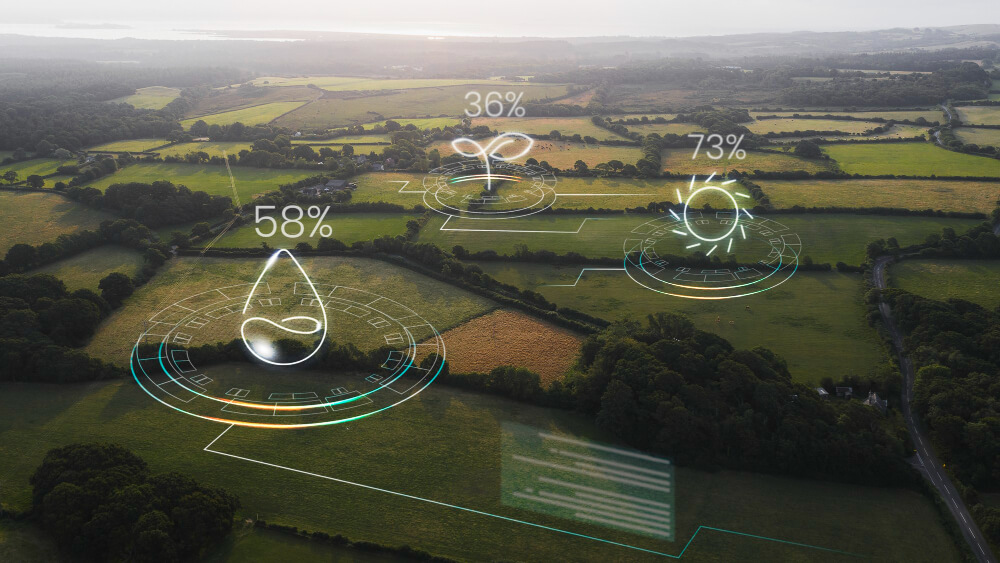

Christopher Burke
Senior Advisor, WMC Africa
Land in Africa is more than a resource. It is the foundation of identity, food security and opportunity. The vast majority of rural land across the continent remains undocumented with varied levels of tenure security. Without proof of rights, farmers face challenges accessing affordable loans and insurance, oftentimes lacking sufficient confidence to invest in their farms.
At the same time, global markets are demanding more from African agriculture. Buyers of cocoa, coffee and other high-value crops increasingly insist on traceability, sustainability and compliance with environmental rules such as the European Union’s new Deforestation Regulation (EUDR). For farmers, this means the ability to demonstrate not only what they produce, but where and how it is grown.
Côte d’Ivoire Rwanda and Uganda provide complementary lessons on how land rights and digital systems can be harnessed to meet these challenges.
Côte d’Ivoire: Linking land reform to markets
Côte d’Ivoire has long been the world’s leading cocoa producer. For decades, weak tenure contributed to land related disputes and complicated supply chains. In recent years, however, reforms have begun to change this picture.
Government-led initiatives such as theProgram for the Securing and Formalization of Rural Land Rights (PRESFOR) are working to secure and formalize rural land tenure in Côte d’Ivoire. Alongside this, the Partnership Contract for the Large-Scale Application of the Pilot Project for the Promotion of Rural Land Rights (CLAP-ProPFR) is expanding earlier pilot efforts to document land rights, often in partnership with international cocoa companies. Over 60,000 certificates have been issued in Côte d’Ivoire to date and digital platforms such as Contra’Terre are helping to streamline land contracts nationwide.
A key strength of Côte d’Ivoire’s model is linking tenure reform directly to agricultural value chains. Cocoa buyers, under pressure to prove that beans are deforestation-free, gain traceability. Farmers gain recognized rights that can open doors to credit, inputs and more secure contracts. Government benefits from reduced conflict and stronger rural governance. The lessons from Abidjan are clear. When land rights are tied to markets, the benefits ripple widely.
Rwanda: Demonstrating scale is possible
Rwanda took a different path. Beginning in the late 2000s, the country launched one of Africa’s most ambitious land registration efforts. In less than a decade, it systematically mapped and registered over 11 million parcels into its Land Administration Information System (LAIS).
LAIS today is fully digital and spatially referenced, underpinning everything from mortgages to land transfers to national planning. The system has given the state a powerful tool to managing land while providing households with clarity and protection.
Rwanda demonstrates that full national coverage is achievable with sufficient political will and administrative focus. For the rest of Africa, it shows that land documentation is not just a pilot project, but can be delivered at scale and integrated into everyday governance.
Uganda: Ready for the next step
Uganda offers a third perspective with perhaps the most immediate opportunity for innovation. Uganda was amongst the first countries in Africa to provide full legal recognition of customary tenure outlined in the country’s 1995 Constitution. While customary tenure is fully recognized, it can still be a challenge to prove in courts of law. Certificates of Customary Ownership (CCOs) issued by local government as detailed in the 1998 Land Act were designed to capture nuanced aspects of traditional practice. They are more accessible and carry the same legal standing as freehold or leasehold titles.
Uganda has also recently completed installation of a fully operational Uganda National Land Information System (UgNLIS) built with international expertise and integrated into government processes. Legal recognition, a digital backbone and an administrative framework are now in place. The next step is to connect these secure land rights directly to agriculture and finance. When farm-level information ranging from crops and inputs to yields and geo-spatial mapping is linked to land rights, Uganda can move beyond static certificates and create dynamic tools that attract finance, support climate-smart agriculture and enable sustainable investment.
The potential benefits to small-hold farmers include affordable loans, crop insurance and easier access to produce buyers who require verified, deforestation-free supply chains. For government, it provides better targeting of subsidies, extension services and soil conservation programmes. Investors stand to benefit from increased transparency and levels of certainty necessary for sustainable, large-scale agricultural investment.
Uganda is well-positioned to demonstrate how land rights, digital systems and agriculture can be tied together into one inclusive model.
Beyond boundaries
The real breakthrough lies beyond simply mapping boundaries. When secure tenure is combined with farm-level data and satellite imagery, land can become the anchor for a broader set of opportunities associated with access to finance, deeper market engagement, competitive insurance premium and a throng of environmental benefits.
Banks and financial institutions can lend more confidently against land that is legally recognized and supported by evidence of production. Insurers are able to design weather-indexed products tailored to geo-referenced plots lowering premiums and extending coverage. The advantages for markets are clear. Potential buyers can track the growth of crops such as cocoa, coffee or vanilla and verify the crops are traceable and sustainably grown. Secure rights encourage farmers to plant trees, invest in soil fertility and adopt climate-smart practices that safeguard both productivity and ecosystems of benefit to the environment.
Land documentation goes beyond governance and provides opportunities for finance, climate resilience, and equitable growth.
Inclusive and sustainable
Equally important are the social benefits. Women form the majority of the agricultural workforce, but struggle to realize the full extent of their land rights across much of Africa. Households invest more in soil fertility, food security improves and children’s education is more secure when land certificates are issued in women’s names or jointly with spouses. Youth, too often excluded from access to land, also perceive agriculture as a viable future when rights are clearly documented.
This inclusivity strengthens rural resilience. It ensures that productivity gains are widely shared and that agriculture becomes a genuine engine of opportunity, not only for established farmers but also for the next generation.
Roadmap for Africa
Each of these countries represent a piece of the puzzle. Côte d’Ivoire demonstrates how land reform can be anchored in global value chains, Rwanda proves that nationwide digital systems are achievable and Uganda demonstrates that when customary tenure is fully recognized and digitized, the stage is set for innovations that connect land to finance, agriculture and sustainability.
A roadmap is emerging for Africa as a whole. Make land secure, make it digital and tie it directly to agriculture and climate-smart development.
Moving forward
The future of African agricultural depends on more than simply yields. Global markets are already demanding sustainability, traceability and equity. Meeting those demands begins not at the port, but at the parcel where land rights and farming practices intersect.
Côte d’Ivoire, Rwanda and Uganda each demonstrate different ways forward. Taken together, they show that secure and digital land rights provide a platform for inclusive, sustainable agricultural growth across the continent.
The foundation is already in place. What remains is to connect the dots. Let Africa’s farmers, communities and investors build on land as their most enduring asset.
END
Christopher Burke is a senior advisor at WMC Africa, a communications and advisory agency located in Kampala, Uganda. With almost 30 years of experience, he has worked extensively on social, political and economic development issues focused on governance, agriculture, environmental issues, policy formulation, communications, advocacy, conflict transformation and peace-building in Asia and Africa.
Stay updated with the latest farming tips and agriculture industry news from Africa by subscribing to our newsletter. Don’t miss out on valuable insights and updates. Follow us on Twitter, LinkedIn, and Facebook to join our farming community and stay connected with us.


















